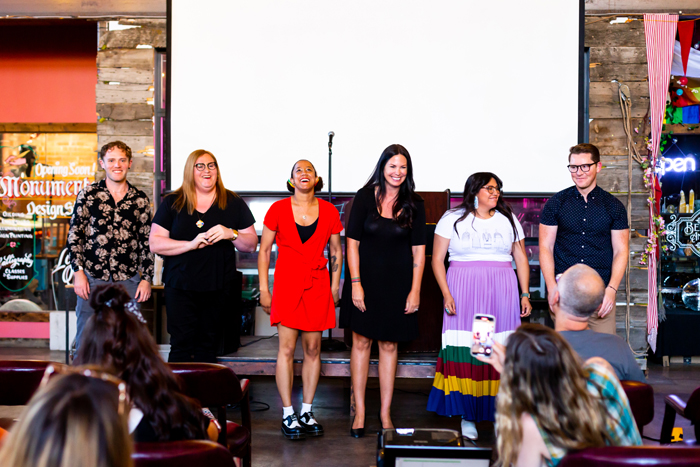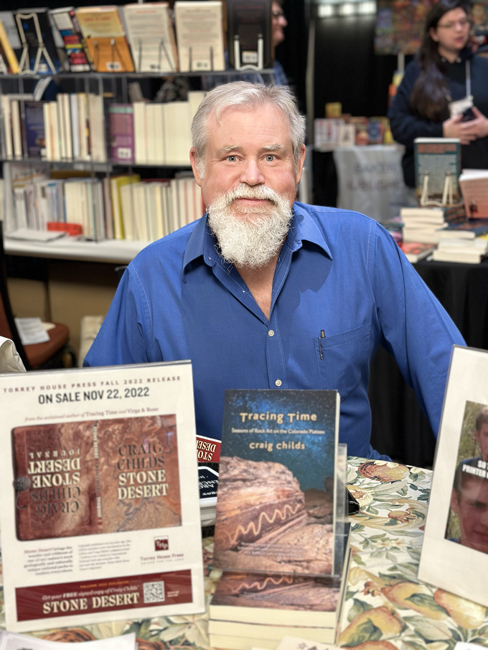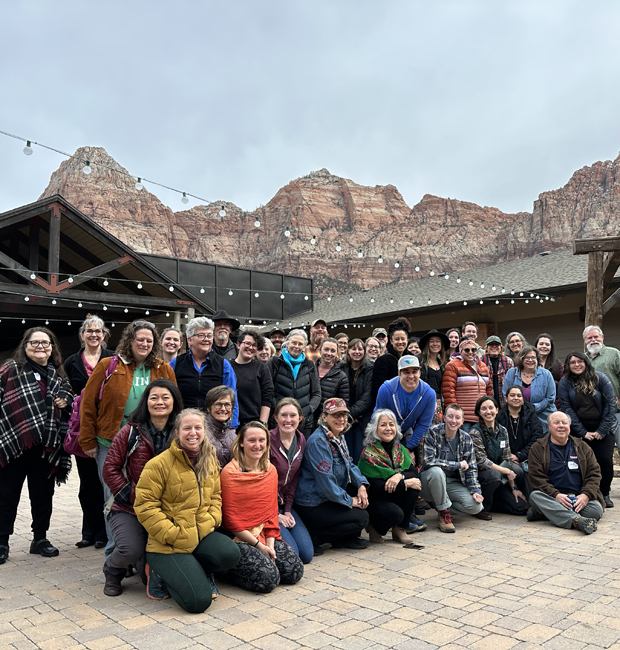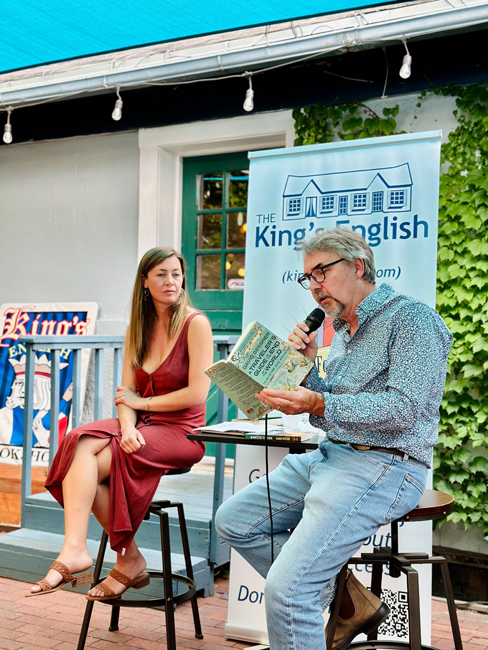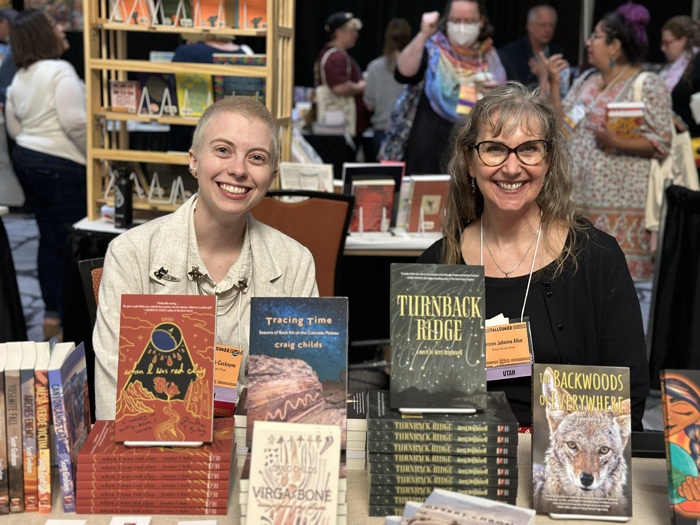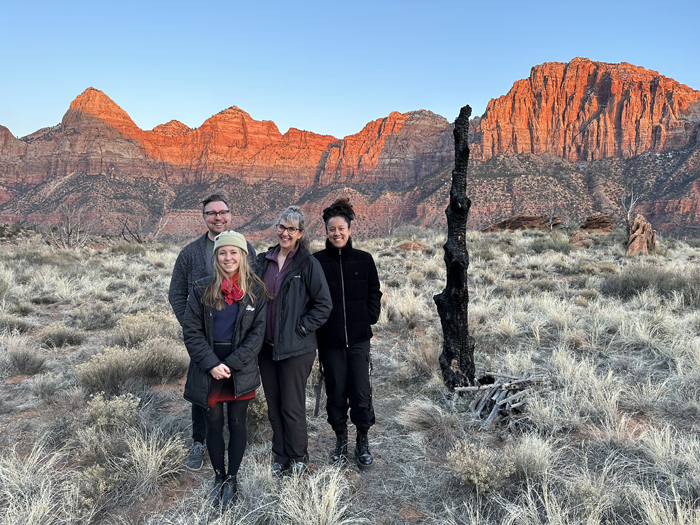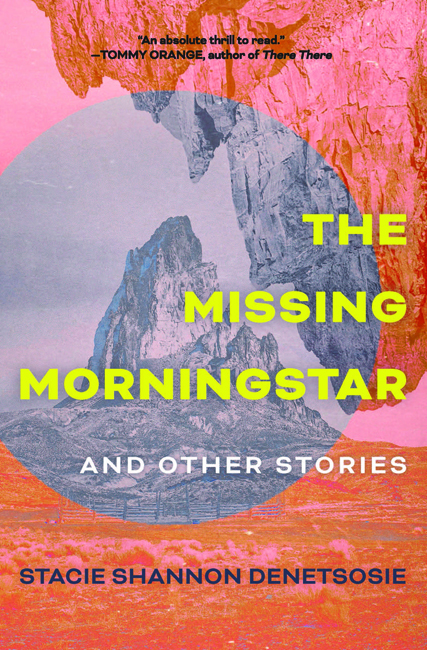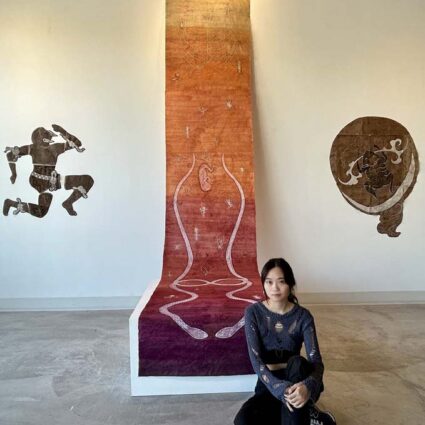Torrey House Press, an Intermountain West nonprofit environmental book publisher founded in 2010, renews its commitment to Western voices with a new focus on diverse perspectives.
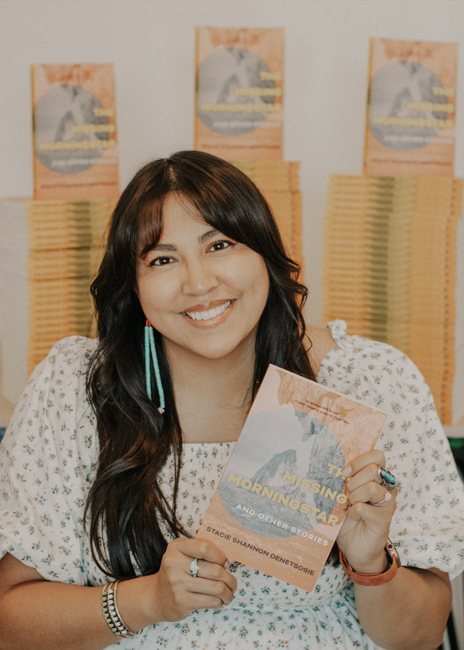
With her fresh MFA from the Institute of American Indian Arts and a manuscript of short stories in hand, Stacie Shannon Denetsosie (Diné) was eager to publish. She knew the “Big Five” publishers (Penguin/Random House, Harper Collins, et al) would be hard to break into, especially with short stories. So, she considered Torrey House Press.
One of her writing instructors at the Santa Fe-based IAIA, Pam Houston, had published, with co-author Amy Irvine, Air Mail: Letters of Politics, Pandemics, and Place with the Salt Lake City-based nonprofit press. On the THP website, Denetsosie also found books by Alastair Lee Bitsóí (Diné) and Linda Hogan (Chickasaw). “Something zinged,” she recalls. “I thought, okay, this place seems promising.”
After Denetsosie had two poems included in the THP anthology Blossom as the Cliffrose: Mormon Legacies and the Beckoning Wild, she was invited to read in Salt Lake City, where Denetsosie met THP co-founder, co-executive director, and publisher Kirsten Johanna Allen and mentioned her short-story collection. Allen was interested. Denetsosie consulted her mentors, who told her, “Publishing with a smaller indie press would mean my first book would get the care and attention it deserves—and that’s been my experience.”
The Missing Morningstar, Denetsosie’s short-story collection, debuted in September 2023 to rapturous reviews. “My stories are a cross-section of Diné coming-of-age stories, with a very clear Latter-day Saints influence, mixed with travel and womanism,” explains Denetsosie, who is from Kayenta, Arizona and now based in Logan, Utah. “When I studied Torrey House’s body of work, I saw a lot of that, along with a close attention to the land, and it all clicked.”
As the “Intermountain West’s only nonprofit environmental book publisher,” Allen says, THP fosters community “at the intersection of the literary arts and environmental advocacy,” the website states. The press’s authors investigate diverse relationships between humans and place, generating conversations about literature, landscape, and in particular the American West.
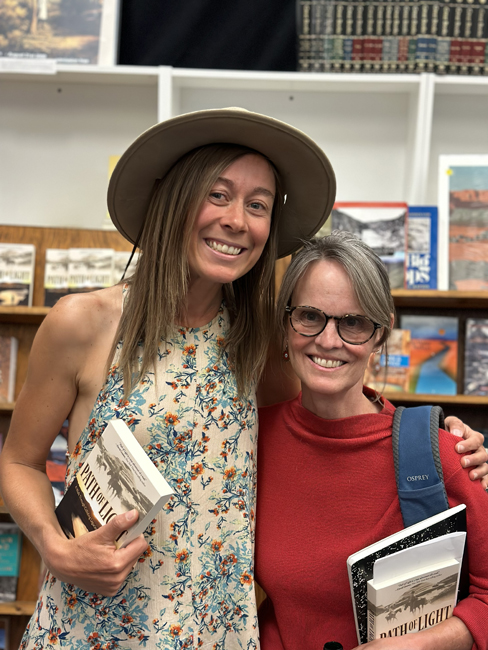
The press, run by a modest crew of four full-time staff and several part-time employees, also takes a fierce stand on environmental justice, which includes a commitment to “seeking writers of color and other marginalized communities whose work engages deeply with place and expands and challenges conversations on environmental and social justice.” It’s a mission THP is working diligently to accomplish.
When Allen and her spouse Mark Bailey founded Torrey House Press in 2010, land management issues and conservation were at the forefront of their minds. “What was missing in our region was a story-telling vehicle that would raise public awareness and fill a cultural gap around these challenges,” Allen says. Most people’s ideas about the West—white individualism, cowboy culture, colonizing the frontier—are “baked into their identity of what it is to be American,” Allen continues. “Most of it is myth. There were a lot of real stories going unheard from this area of the country.”
Torrey House began “filling that void of Western voices and perspectives,” Allen says, putting contemporary writers like Stephen Trimble, Chip Ward, Jackqueline Keeler, and Amy Irvine into conversation with iconic Western voices like Edward Abbey and Wallace Stegner. But now, “The West is on the map in a way it hasn’t been before, and our writers are putting forth books and ideas that center issues in the West in conversation with the past, present, and future of the country,” Allen explains.
Collaborations with other nonprofits, including Wild Earth Guardians—a multi-state organization working to preserve the wildlife, rivers, and wild places in the American West—resulted in First & Wildest: The Gila Wilderness at 100, an anthology featuring pieces by Native authors Joy Harjo, Deb Haaland, Leeanna Torres, and several Latin writers. That anthology landed in the hands of policymakers and legislators, Allen says. Anthologies, including Blossom as the Cliffrose and other new projects, says co-executive director and executive editor Will Neville-Rehbehn, have allowed THP to “build networks of more diverse writers, along with trusting relationships, that result in those writers publishing full-length books with us.” Denetsosie is one such writer.
Next year, Torrey House is slated to publish two anthologies featuring work by Native and Hispanic writers. And while THP has “explicit goals around writers of color,” says Neville-Rehbehn, “we’re behind where we want to be.” To find and welcome those authors, the press engages in extensive outreach, networking, and community building with conservation organizations, booksellers, trade shows, writers’ conferences, and its annual Voices for the West writing workshops. The staff works with THP’s current authors to diversify networks of writers throughout the region and find artists from whom it can commission cover art for upcoming books.
The publisher, which is committed to diverse voices, continues to actively build new relationships with women of color. In 2022, Torrey House published Jonathan T. Bailey’s memoir I Was Red Clay: A Journey of Identity, Healing, and Wonder, which chronicles the challenges of growing up gay in rural Mormon Utah. And next year, THP plans to debut the first novel by Charlie Stephens, a mixed-race, non-binary, Oregon bookstore owner.
“We’re all about intentionally building community,” Allen says. “What distinguishes us from other nonprofit publishers is our commitment to being a mission-driven community organization in addition to being a publisher that shows up for our authors, from acquisition and editing through marketing and publicity, to ensure every book finds its audience.” From her initial invitation to read her poems and meet THP staff, Denetsosie says, “The sense I got was that they’d give my book sincere care and attention, and they certainly have.”
